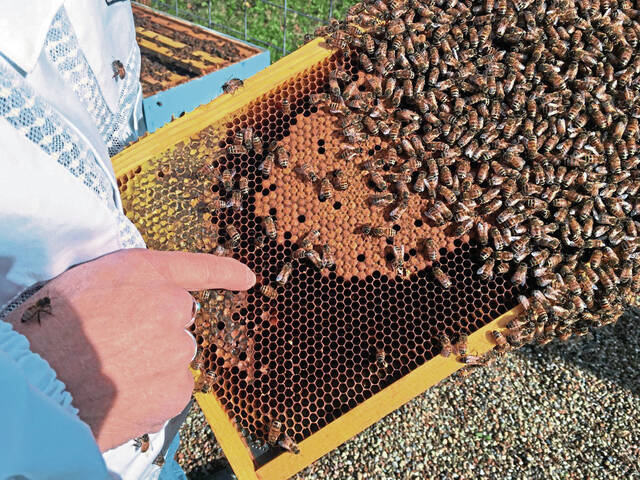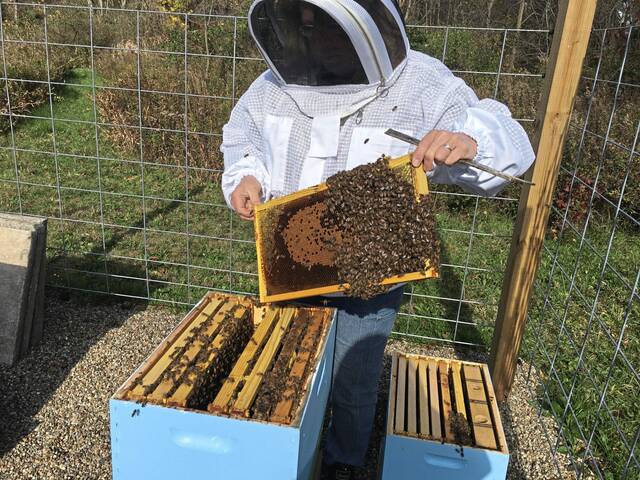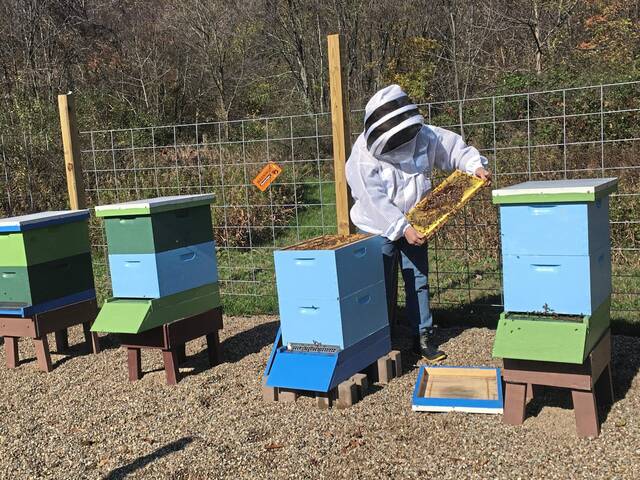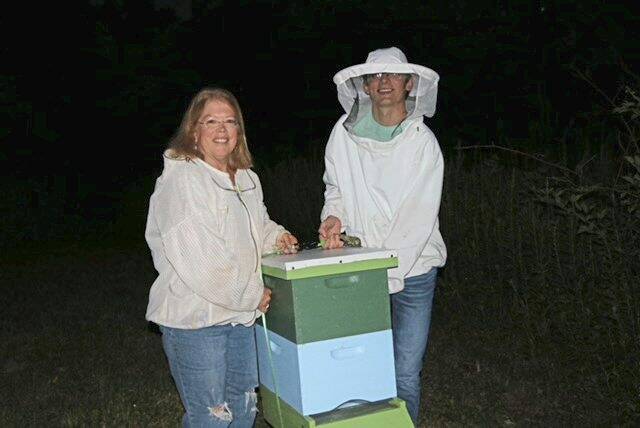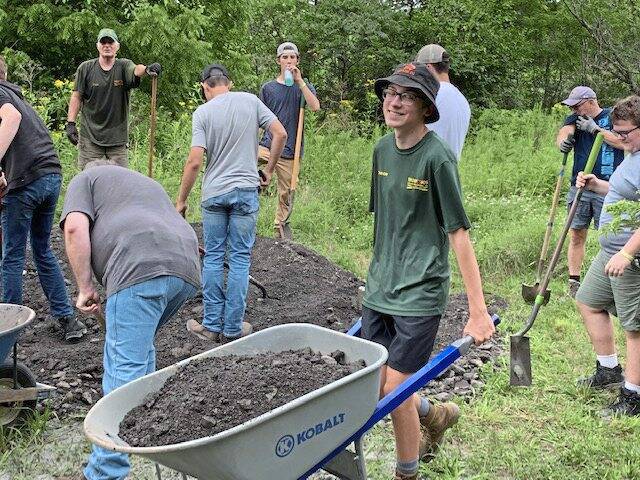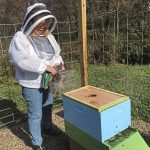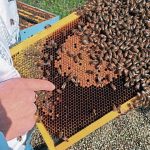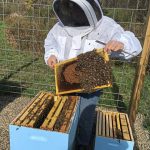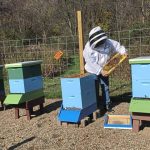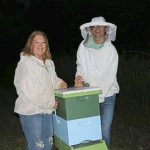A handful of workers at Westmoreland Cleanways and Recycling keep busy sorting and stacking unwanted items patrons bring in for reprocessing elsewhere into new products.
Unseen behind a screen of vegetation, a much larger force also is hard at work — turning nectar into honey.
Five hives, each containing tens of thousands of honeybees, have taken up residence in an apiary at the rear of the 8-acre site in Unity under the care of beekeeper Nancy Thorne.
“They are doing quite well,” said Thorne, of Hempfield, who established the hives as part of her requirements for becoming a Penn State master naturalist. “We’re hoping to get them through the winter, so we can have some educational programs and talk more about bees and pollinators next spring.”
The hives are surrounded by thickets of trees and wildflowers that are good sources of pollen and nectar the bees need to thrive.
“A few weeks ago, all the goldenrod was in bloom,” Thorne noted.
Now, with temperatures and leaves dropping, the bees are shifting from collecting food to over-winter clustering in the hive, when the tight formation of their moving bodies keeps themselves and their queen warm.
The apiary project was sparked by Westmoreland Cleanways’ need to remove some colonies of bees from a vacant building it intends to transform into offices. Thorne coaxed some from the building into cluster boxes pre-loaded with honeycomb. She also used a modified shop vac to transfer them to the apiary.
“It took some time, but that was a rewarding part of the project,” said Thorne.
Thorne installed a solar-powered electrified fence around the hives to keep bears from feasting on the bees’ honey or their developing young.
A local teen, working on his Eagle Scout project, organized resources and a crew of about 30 volunteers to improve access to the apiary.
Connor Pflugh, 17, a senior at Greater Latrobe Senior High, mustered help from family, friends and fellow members of Boy Scout Troop 405 in South Greensburg as he used stone aggregate to create a trail to the apiary.
“I wanted to make it look nice, so they could turn it into a learning center and make it accessible,” said Pflugh, of Unity. “There was a ditch you had to step over.”
He drew upon resources from Penn State and the nonprofit American Trails and advice from the local Country Farms garden center and landscape service to plan the trail. He modified a U.S. Forest Service design for a small footbridge over the ditch.
His crew also laid a surface of pea gravel inside the apiary enclosure so Thorne won’t have to mow around the hives.
It was a learning experience that was rewarding for Pflugh.
“It’s a lot of skills involved, time management and how to organize and work with people to do something,” he said. “It’s helping the environment, and it was just a good project to do for the community. It’s going to have a lasting effect.”
Working with a budget of about $1,100, Pflugh raised some money by selling firewood. He also received donations of some materials.
Westmoreland Cleanways obtained two grants, $500 each from Keep PA Beautiful and the Earth Volunteer Fund, to help with the cost of supplies for the project.
Thorne has been keeping bees for about eight years. She was exposed to the agricultural pursuit by her daughter’s boyfriend at the time and received her first hive as a present.
Now, operating Edge of the Wood Apiaries, she tends 40 hives spread among sites in Hempfield, Salem and Ligonier townships and the Westmoreland Cleanways property.
While she’s experienced good survival rates among her bees, she noted beekeepers must keep a constant guard against mite infestations in their hives. Loss of habitat and harmful chemicals in the environment also have become a threat for bees.
“A few things most homeowners can do to help all pollinators is to reduce their use of pesticides, plant (pollinator-friendly) plants in their yard and garden and try to stick to plants and flowers that are native to this area,” she said.



